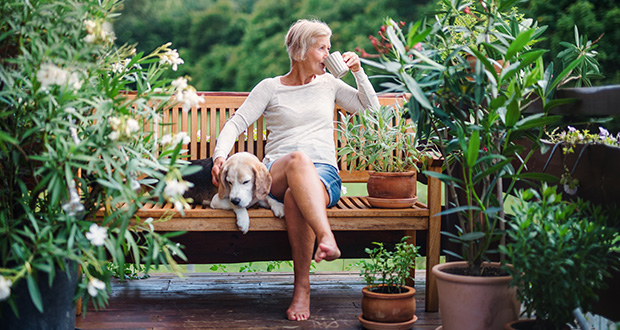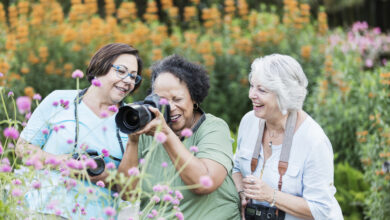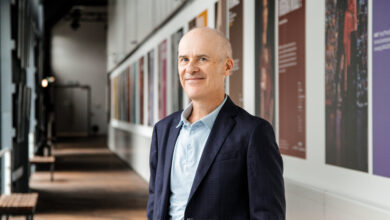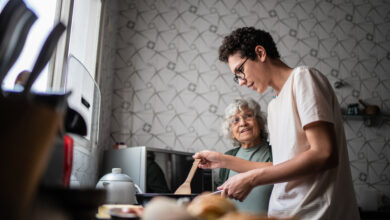Addressing health inequities for older women: Q&A

A gerontology professor has pressed for more research to improve health outcomes for female Australians later in life.
Older women are at an increased risk of facing limited financial resources, living alone, and frailty and social isolation.
Gerontology Professor Colette Browning from the Federation University said Australia needed to create more opportunities for women to encourage social connections and physical activity.
"Recognising the health inequities women face later in life can inform policies to foster social connections and ensure access to vital health information among the most vulnerable populations," professor Browning said.
Aged Care Insite spoke with professor Browning about the role of physical activity, social determinants of health, and how research can contribute to improving the health and wellbeing of older women.
ACI: What are some key concerns connected to women and ageing?
CB: There are several concerns related to women and ageing.
Women, in general, tend to live longer than men, which is the first point to consider.
Consequently, women are more likely to live alone.
So, numerous concerns are related to ensuring women have sufficient social connections as they age, such as access to community support groups.
Improving the functional health of older women is an important aspect of research in this field.
How can physical activity contribute to healthy ageing for women?
Physical activity is a strong predictor of successful ageing, regardless of gender.
Encouraging older women to be more physically active can positively impact their long-term health.
It's not necessary to engage in high-intensity exercises but rather to stay active and avoid a sedentary lifestyle.
Creating environments facilitating physical activity, such as organising walking groups specifically for older women, is also important.
Simple activities like regular walks can significantly improve their health, like walking to the supermarket and back.
Other activities like gardening can also keep them active.
It's important to create opportunities for older women to be socially engaged and physically active to promote their wellbeing.
Overall, healthy ageing means being able to continue doing the things you enjoy, maintaining physical abilities, and feeling emotionally and socially connected to friends and family.
The focus is on maintaining functionality and having fulfilling social connections to enjoy life as they age.
What are some of the social determinants of health that affect older women?
Older women, particularly those from ethnic minority groups, are often at a higher risk of social isolation.
Women, older age, and financial difficulties are also linked to social isolation.
Recognising these health inequities can inform preventive policies to foster social connections and ensure access to vital health information among the most vulnerable populations.
Technology can provide opportunities for social interactions, support, and access to health information, enhancing the overall wellbeing of older women.
But it's important to design and implement gender-specific models that consider dignity, ageism, autonomy, and privacy.
Technology can provide opportunities for social interactions, support, and access to health information, enhancing the overall wellbeing of older women.
What are, in your opinion, key aspects of allowing people to age healthily?
It's crucial to educate society about the true meaning of ageing and the actions we can take to facilitate the ageing process.
We need to emphasise that ageing is a universal experience and that steps can be taken to make the journey smoother.
That involves personal choices, such as engaging in physical activity, maintaining a healthy lifestyle, and creating supportive environments with safe walking areas and access to community groups.
Addressing broader factors like structural and environmental influences is also essential in promoting healthy ageing.
What are the challenges in addressing ageism and discrimination against older people?
Challenges related to age discrimination persist, particularly in the workforce, where older people may face the perception of being too old to continue working.
While there is increased awareness of ageism, there hasn't been a widespread shift in people's attitudes.
Ageism remains an issue that society needs to confront, similar to other forms of discrimination, such as sexism and racism.
But I'd say there's an increased awareness of ageism.
Some organisations and businesses are actively working to prevent discrimination against older people, but progress in addressing ageism has been relatively slow.
How can research contribute to improving the health and wellbeing of older women?
Research plays a vital role in understanding the specific challenges and needs of older women.
Large-scale longitudinal studies can shed light on the social determinants of health, gender effects, and diseases that disproportionately affect women.
By gaining insights from research, we can develop interventions to address personal, social, and environmental factors to promote the health and wellbeing of older women.
Email: [email protected]





